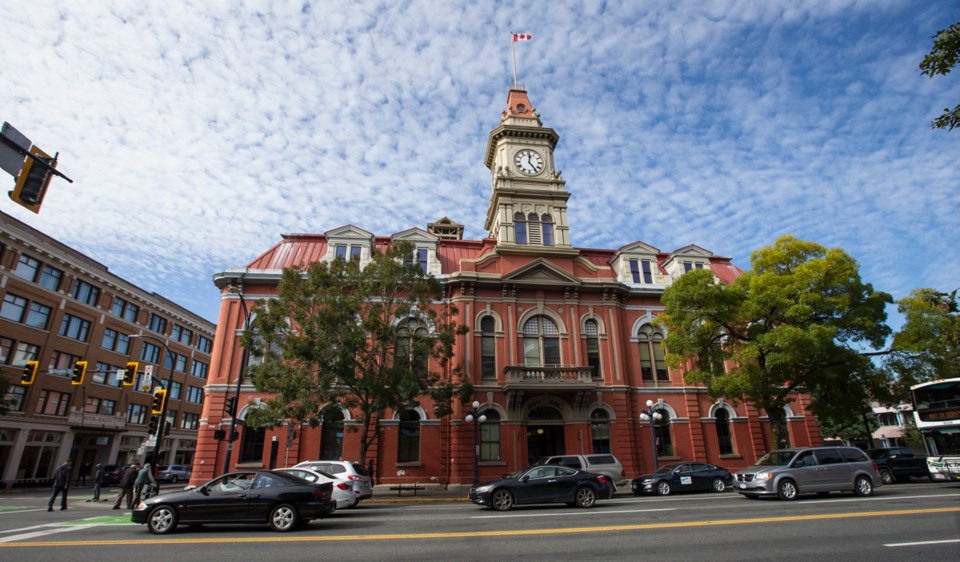A group of Victoria city councillors is urging support for a regional plan that retains and builds on some of the COVID-19 response measures, such as free public transit and emergency aid for people without homes.
Councillors Ben Isitt, Jeremy Loveday, Sarah Potts and Sharmarke Dubow want council to endorse a policy statement developed in recent weeks by Common Vision, Common Action, a coalition of community, religious, labour and environmental groups.
Isitt, who sat on the group’s policy committee, said participants were inspired by people’s compassion and co-operation in response to the pandemic and the associated economic crisis.
“There were also people looking at the ecological benefits of the shutdown in terms of taking some of the pressure off of natural ecosystems and lightening the footprint of humanity on the planet,” he said. “So the idea coalesced of advocating for a caring and low-carbon region after COVID-19.”
The resulting document, Moving Forward, Not Backward, advocates retaining a number of COVID-19 response measures to deal with other ongoing crises, such as climate change, inequality, drug overdoses and the impacts of colonization on Indigenous peoples.
Among the proposed actions:
• keeping the current fare-free public transit program in place on a trial basis for one year and deploying the B.C. Transit fleet with maximum service hours
• permanently converting some of the motels, hotels and short-term rental units in the region to residential housing with supports
• maintaining access to safer prescription alternatives to street drugs, along with increased investment in detox, treatment and recovery services
• expanding municipal support for food production on public and private land, including distributing soil, plants and other gardening materials
• pressing the federal and provincial governments to bring in a wealth tax, withhold regulatory approval for all new fossil-fuel projects and halt the Trans-Mountain and Coastal Gaslink projects
Jenn Neilson, a member of the policy committee and a director of the HQ Collective in the Hillside-Quadra neighbourhood, said Victoria council will discuss the regional policy agenda today, but it’s hoped other municipalities will review and endorse the plan as well.
She said COVID-19 has shown what communities and governments can accomplish for people in need and for the environment.
“I think for so long, we were told that much of this is impossible, but actually, it turns out it’s just a matter of priorities more than anything else,” she said. “And I think a lot of people are realizing, both personally and societally, that maybe the priorities that we had before weren’t benefiting everybody quite as much as we thought and were maybe leaving some people behind.”
Neilson said a number of community, environmental and religious organizations are backing the project, including KAIROS Victoria, a multi-faith coalition working on peace and justice issues.
Grace Draper, co-ordinator with KAIROS Victoria, said the policy statement dovetails nicely with the organization’s name, which derives from an ancient Greek word for a moment in time when change is possible.
“I love that word, because I really do believe — and a lot of people have come to the conclusion — that we are at a kairos moment about a lot of issues,” she said. “Not just dealing with this virus, but it’s forcing us to assess the political, the economic, the environment, our own personal lives — all of it and how it’s all interconnected.
“There’s an opportunity here. Change is possible.”
Victoria council will consider the policy statement at its committee of the whole meeting today.



